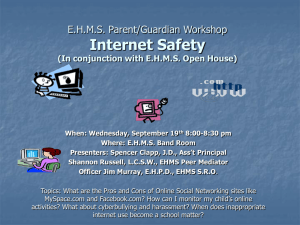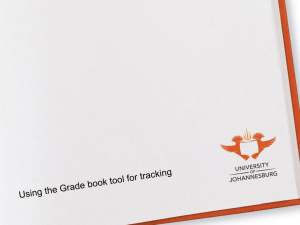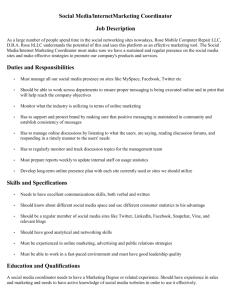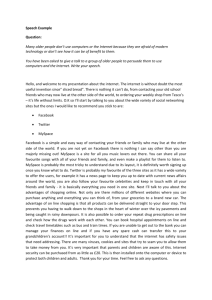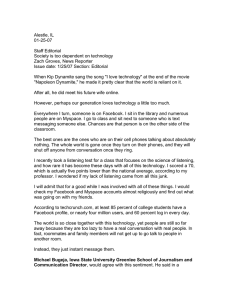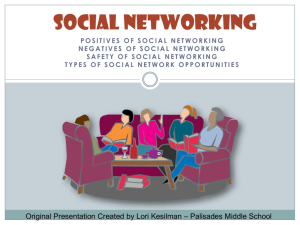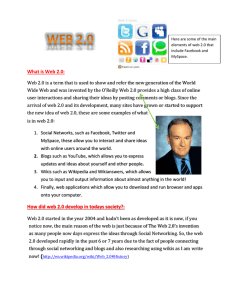USA Today 08-15-06 Campuses connect students online
advertisement
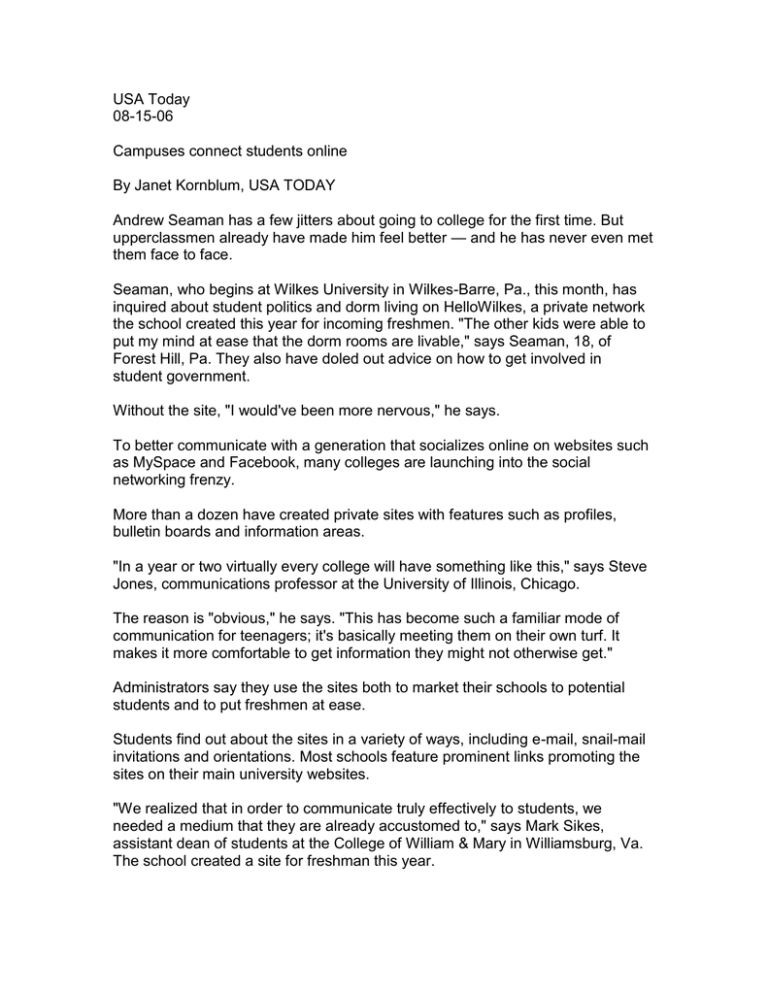
USA Today 08-15-06 Campuses connect students online By Janet Kornblum, USA TODAY Andrew Seaman has a few jitters about going to college for the first time. But upperclassmen already have made him feel better — and he has never even met them face to face. Seaman, who begins at Wilkes University in Wilkes-Barre, Pa., this month, has inquired about student politics and dorm living on HelloWilkes, a private network the school created this year for incoming freshmen. "The other kids were able to put my mind at ease that the dorm rooms are livable," says Seaman, 18, of Forest Hill, Pa. They also have doled out advice on how to get involved in student government. Without the site, "I would've been more nervous," he says. To better communicate with a generation that socializes online on websites such as MySpace and Facebook, many colleges are launching into the social networking frenzy. More than a dozen have created private sites with features such as profiles, bulletin boards and information areas. "In a year or two virtually every college will have something like this," says Steve Jones, communications professor at the University of Illinois, Chicago. The reason is "obvious," he says. "This has become such a familiar mode of communication for teenagers; it's basically meeting them on their own turf. It makes it more comfortable to get information they might not otherwise get." Administrators say they use the sites both to market their schools to potential students and to put freshmen at ease. Students find out about the sites in a variety of ways, including e-mail, snail-mail invitations and orientations. Most schools feature prominent links promoting the sites on their main university websites. "We realized that in order to communicate truly effectively to students, we needed a medium that they are already accustomed to," says Mark Sikes, assistant dean of students at the College of William & Mary in Williamsburg, Va. The school created a site for freshman this year. Along with message boards that allow students to connect, the site acts as a clearinghouse for all sorts of information on everything from classes to regional culture and events. College networking sites vary. Some are little more than message boards; others have areas where students can write full profiles and communicate with each other like they do on MySpace and Facebook. And judging by the traffic at some sites, students are using them. At William & Mary, for instance, 1,500 of the 1,600 newly admitted students have logged on in the past month, Sikes says. Other schools with new networking sites this year include Harrisburg (Pa.) University of Science and Technology; Marietta (Ohio) College; Wellesley (Mass.) College; Purchase (N.Y.) College and Seton Hall University in South Orange, N.J. "Universities need to be where people are," says Cheryl Brown, director of undergraduate admissions for Binghamton (N.Y.) University, which also has a new site. Seaman and his friend, Stephanie Gerchman, also an incoming Wilkes freshman, say HelloWilkes makes connections and answers questions. Gerchman, for instance, got advice that helped her to choose psychology as her minor. Some students like the idea of networking so much that they take a do-it-yourself approach. Gerchman says she prefers MySpace and Facebook because they allow her to directly contact friends. HelloWilkes has an area to post personal profiles and weigh in on designated topics, such as dorm living and studying, but there's no built-in spot for e-mail addresses or instant-messaging names. So she created her own group on MySpace, based on the HelloWilkes site, open to incoming Wilkes students. She also uses Facebook and already has a movie night planned for the beginning of the school year with another Wilkes student she met there. Some colleges use college-oriented Facebook rather than building their own sites. "Why reinvent the wheel?" says Christopher Oertel, director of residential life for the College of Saint Rose in Albany, N.Y. He created a Facebook page for his department to reach out to incoming freshmen. "We're taking advantage of what's provided for us." Some worry that creating their own online networks could create legal problems. "If we exercise prior review or censorship, we're going to invite a whole new series of litigations," says Michael Bugeja, director of the Greenlee School of Journalism and Communication at Iowa State University in Ames. But by and large, setting up networking sites for students seems worthwhile, administrators say. "If you want the authenticity and true voice of the students, you have to be willing to take the bad with the good," Binghamton's Brown says. "On occasion, something sneaks in where we go, 'gulp.' And so far we have been pretty open about letting our students' comments stand as is. "For students, these really are social connections. If we want to connect with our students and have them connect with each other, we need to be taking advantage of this medium."
